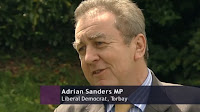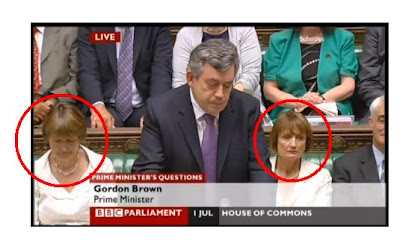 Is it Time
Is it Time
to end
this
TV TAX?Is there a better way of funding the BBC?
I have just had another reminder for the TV licence in my flat in London. I am not an MP and don't have this luxury paid for by the taxpayer, so I have to pay a total of £285 to be able to watch TV all week
and all weekend; regardless of the fact that we prefer Sky and
ITV.
The current fee of £142.50 represents a rise of over 50% in the last ten years. The BBC argue this increasing amount is
necessary because of the extra costs of providing new technology and the growing number of new channels they have. Currently they say the fee provides:
- the television channels BBC One, BBC Two, BBC Three, BBC Four, BBC News, BBC Parliament, CBBC and CBeebies;
- five network radio services, plus BBC Asian Network, and digital radio services BBC 1Xtra, BBC Radio 7, BBC 6 Music and BBC 5 Live Sports Extra;
- regional television programmes and Local Radio services in England;
- national radio and television in Scotland, Wales and Northern Ireland;
- BBC Red Button, BBC Mobile and the BBC website (bbc.co.uk).
This is a very long way from the original purpose of the BBC which was brought into existence in 1922 as a non profit making corporation owned by it's founding
shareholders (including Marconi,
Vickers and General Electric) to experiment with public
broadcasting. Later, in 1923, it was given a Royal Charter and financed from 1927 via the licence fee "to enrich people's lives with programmes and services that inform, educate and entertain."

Sadly the basic service has been allowed to mushroom and complicit Governments have voted for the BBC licence fee to balloon to keep up. From a few pounds in the 1970's the fee is now a substantial chunk of many homes
entertainment income, and while the politicians of the left go on about poverty, latterly 'energy poverty' and now even 'water poverty' none of them seem keen to address the fact the for many poorer households the TV tax is a serious and growing expense they should do without, but can't.
The House of Lords reviewed the charter in 2004 and their Lords report says "Using television receiving equipment without the appropriate licence is a criminal offence subject to a maximum fine of £1,000. In 2003 a total of 96,872 people were prosecuted in the UK for licence fee evasion. No-one can be imprisoned solely for licence fee evasion. However, if an evasion fine is not paid, then magistrates have the power to impose a prison sentence.
In England and Wales, 28 people were imprisoned in 2004 for non-payment of licence evasion fines (the average sentence was 14 days). In Scotland 18 people were imprisoned in 2004."
Every time I raise this subject someone pops up and says 'but the BBC make good programmes' and I always reply the same, the BBC don't, the people who work for them do. Those people work for the BBC but could and would work for another
broadcaster if the BBC wasn't there. I have never agreed that the BBC is somehow essential, it might have been in the 1950's when it was BBC1 or
ITV but today when there are 900 channels I just don't see that it deserves special status.
Having to pay for the BBC is even more galling for those of us who subscribe to Sky or Virgin, it's the equivalent of being obliged to pay for a Jaguar first if you want to buy a BMW, just to keep the firm going.
The time has come I believe to radically review why the BBC exists and consider new ways of providing the public service output that some people say would not be made if there were only commercial channels (still wondering why we need special 'public service' broadcasts but not 'public service' newspapers or magazines, but there you are) .
I have a suggestion. Firstly, we could make the licence fee optional to people who want to watch the BBC, possible now with digital technology. Second, sell off the corporation except radio 4 and BBC2 ,
estimates vary hugely but SKY - with half the viewers and none of the valuable TV archive material- is worth £8
bn, so the money raised from a partial BBC
privatisation could easily top £15
bn.
Properly invested £15
bn would yield enough to finance a decent news and public service broadcast service on one national radio station and one TV channel in perpetuity, without costing you and I a penny, and without needing the expensive TV licencing service, and without cluttering up our courts and prisons with thousands of unfortunate fee dodgers.
If you still wanted to watch
Eastenders, Strictly Come Dancing or
Holby City then you'd have to pay the BBC
subscription; but if you wanted to be "enriched with public service programmes and services that inform, educate and entertain" you could do so on radio and TV for free, forever.
 The Totnes Primary
The Totnes Primary double bluff? Is he hoping that if he publicly urges Lib Dems to vote for Nick Bye then Tories might do the opposite in droves, depriving Nick of the nomination and forcing him to stay on as mayor?
double bluff? Is he hoping that if he publicly urges Lib Dems to vote for Nick Bye then Tories might do the opposite in droves, depriving Nick of the nomination and forcing him to stay on as mayor?



















.jpg)

